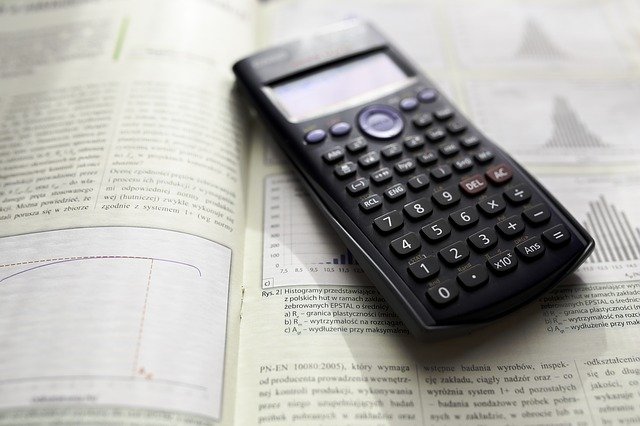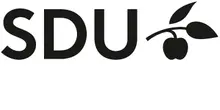
10 Qualities That Define A Good Economist
Read a summary using the INOMICS AI tool
Having helped so many economists take their next career step, we at INOMICS know full well how rewarding working in economics can be. When you find that solution you've been looking for, or contribute some research that actually seems to get read and make a difference, it can be the best feeling in the world. But this won't happen unless you work on yourself and the skills that are essential for becoming a successful economist in general.
There are lots of skills that come with being an economist, some more important than others. Obviously, being able to sift through dense theoretical and scientific papers and acquire the information you need is one of the top skills an economist - and academics in general - should have. Seeing as you'll spend so much of your time reading, it's essential to be good at it.
But there are other skills, both soft and hard, that are essential to your career as a successful economist. Read on for the ten we at INOMICS think are the most important. Remember, if you think you're a little weak in one area, there's always room to improve through courses (INOMICS may be able to help you here), persistence, and surrounding yourself with other successful people who have expertise in areas you do not.

1. Mathematical aptitude
Numeracy is a key skill for an economist. From dealing with large datasets to interpreting visual data like graphs, you'll need to be comfortable handling numbers and working with mathematical principles. This is why many economists take preparatory classes in mathematics before beginning work or study in economics.
2. Knowledge of social sciences
Economics also has a lot of common ground with other social science subjects like psychology, history, and sociology. Thus, having a working knowledge of these subjects and the methods used in them is highly beneficial. In recent years, economics and the other social sciences have become ever more interdisciplinary, meaning an understanding of these subjects is not only desirable but increasingly essential if you're to keep up to date on economic theory. Knowing a little about other, related areas will also benefit you in life in general; a bit of history knowledge gives people something else to ask you about at dinner parties, other than inflation rates or the stock market.
3. Good at understanding complex systems
The unavoidable fact is that economics is a complicated subject which looks at complex and intertwined systems. To excel, you'll need to be able to pull together information from different sources and different fields to inform your theories. You’ll need to be comfortable examining data to look for trends and possible causations of a complex problem. Learning these skills requires time, effort, and a little patience. Like we mentioned before, it also entails reading a lot in order to get yourself up to speed with the latest developments in theory.
4. Curious
In order to be successful as a student, professor, or researcher, you need to be interested in and engaged with your subject, so having a strong sense of curiosity will serve you well. What is unknown or unclear in your field? How do insights from other fields affect the understanding of your subject? What topics are up for debate, and what are the arguments on each side? Answering these questions is a great way to direct your focus and discover new areas of research or discovery to be had.
5. Independent thinker
While curiosity will help you gain knowledge of other people's work and theories, to be truly successful as an economist you also need to have insights and ideas of your own. The ability to think for yourself and to question what you know will allow you to take new directions and to come up with original research which will make you a better economist.
Being an independent thinker will also benefit you at conferences, seminars and lectures. It's engaging to have a controversial opinion shared, or at least to play the devil's advocate, as it facilitates discussion and encourages deeper thinking. Many things which are taken as common knowledge, or came to pass, were once derided as foolish and clearly wrong. Just ask economist Nouriel Roubini, who predicted the economic crisis of 2007-2008.
6. Comfortable with uncertainty
You will need to be comfortable with uncertainty, as not every question in this field has a clear and unambiguous answer. Economics is good at throwing curveballs and doing things you hadn't predicted or expected. It also has the difficult characteristic of being one of those subjects in which there's rarely a 'right' or 'wrong' answer - many things are still being debated, and all is to play for.
This can be a scary thought when going in, knowing that there will be people who disagree with you all the way down to your most fundamental assumptions. But this also means the discipline is varied and exciting - the curious and those who question everything shall be rewarded.
7. Writing skills
It's no good having a great understanding of economics unless you can communicate that understanding to other people in a way which is meaningful. Good writing skills are essential for making sure that your articles, book chapters, and notes are useful and comprehensible to others.
Unfortunately, in modern academia much writing is incomprehensible, made up of what linguist Steven Pinker calls 'academese', or the language of academics. Remember, simpler is always better, never use a long word where a short word will do, and remove any superfluous 'that's whenever you get the opportunity. (Read George Orwell for more on this). For any piece of writing, keeping its purpose and your audience in mind will help you determine how much jargon is appropriate.
8. Verbal communication skills
Besides writing well, you'll also need to be an effective presenter so that you can speak at conferences and teach classes. You should be comfortable speaking in front of an audience and able to convey the essential points of your subject clearly and concisely. If you do this, and manage to become a clear and commanding speaker, people will take you more seriously and actually listen to you; there's nothing more disappointing than having a speaker whose ideas are brilliant but delivered in an underwhelming fashion.
These skills also help with other social situations like job interviews, speaking to the media, or making contacts to build up your network at conferences and other events. These skills and contacts will be helpful in the future when you finally need to spread your work.
9. Open minded
Fact-driven debate, and updating older views or models based on empirical evidence, are key means by which economics continues to evolve. A debate with a colleague can be a highly instructive experience, but only if you are open to hearing their views and to adjusting your own opinions where necessary. Depending on how the debate goes, you could have your opinion changed and be brought about to a new way of thinking, or you could successfully reinforce your own ideas - linking back to the idea of being an independent thinker.
Thus, for success in economics (or any academic field), you need to be open-minded. It's important that you are open to new ideas and do not become too set in your perspective. You need to be able to hear the views of others and to engage productively with them even if you disagree with their reasoning.
10. Self-motivated
Economists, particularly academic economists, need to be able to motivate themselves. From postgraduate studies onwards you will be expected to manage your own time and set your own priorities, so you need the drive and motivation to complete tasks without anyone else checking or supporting you.
Of course, this is increasingly true from the Bachelor's level up; being self-motivated and able to get your work done will help enormously when slogging through long hours of theses, dissertations and PhDs. Remember though, that while it's important to be disciplined in work, don't forget to take time to yourself to unwind, relax, and refresh your mind for the next day.
-
- Postdoc Job
- Posted 6 days ago
Research Associate (Post-doc, f/m) in the fields of applied econometric and distributional analysis
At LISER (Luxembourg Institute of Socio-Economic Research) in Esch-sur-Alzette, Luxembourg
-
- Postdoc Job
- (Remote)
- Posted 6 days ago
Vacancy for a Postdoctoral fellow
At University of Ghent in Gent, Belgium
-
- Conference
- Posted 1 week ago
MIRDEC 26th MADRID 2026 Conference
Between 28 May and 29 May in Madrid, Spain














